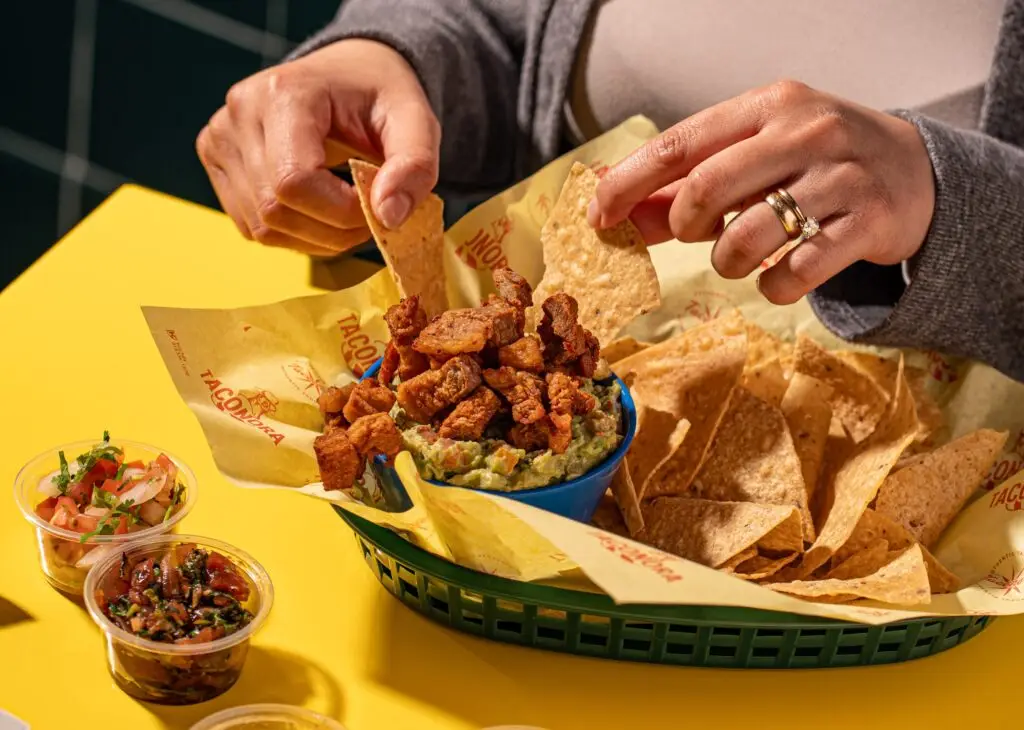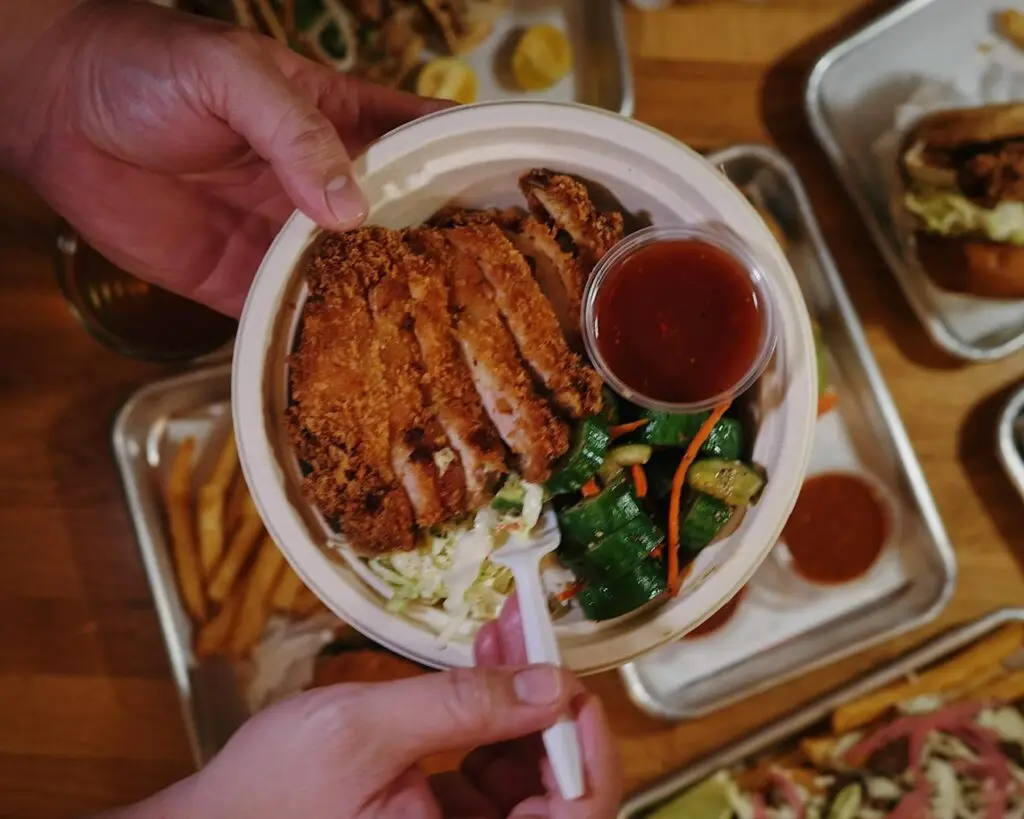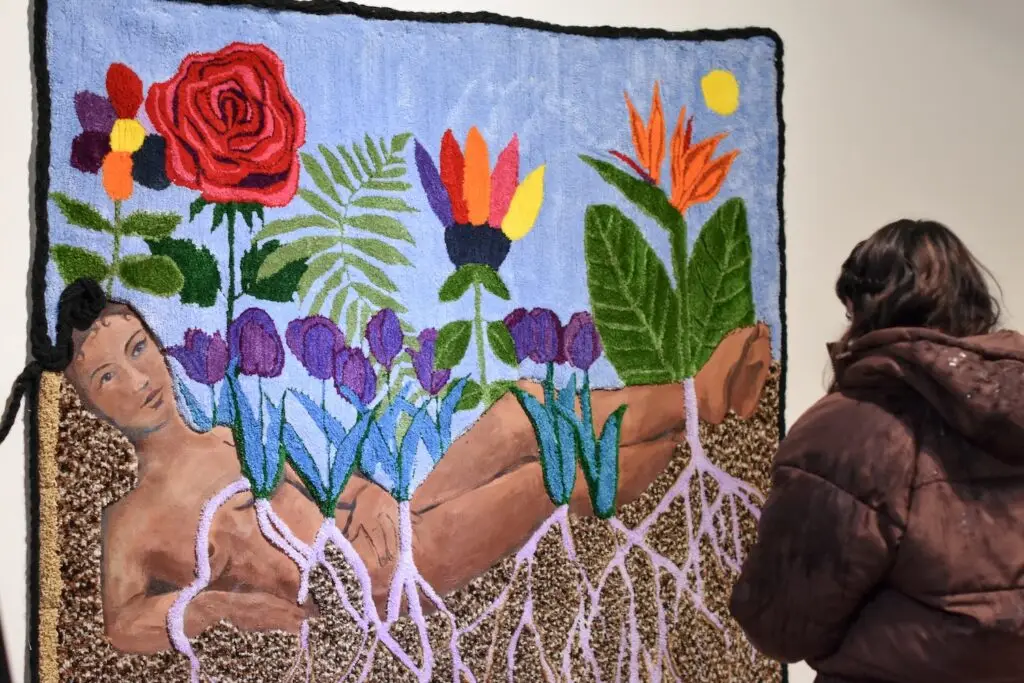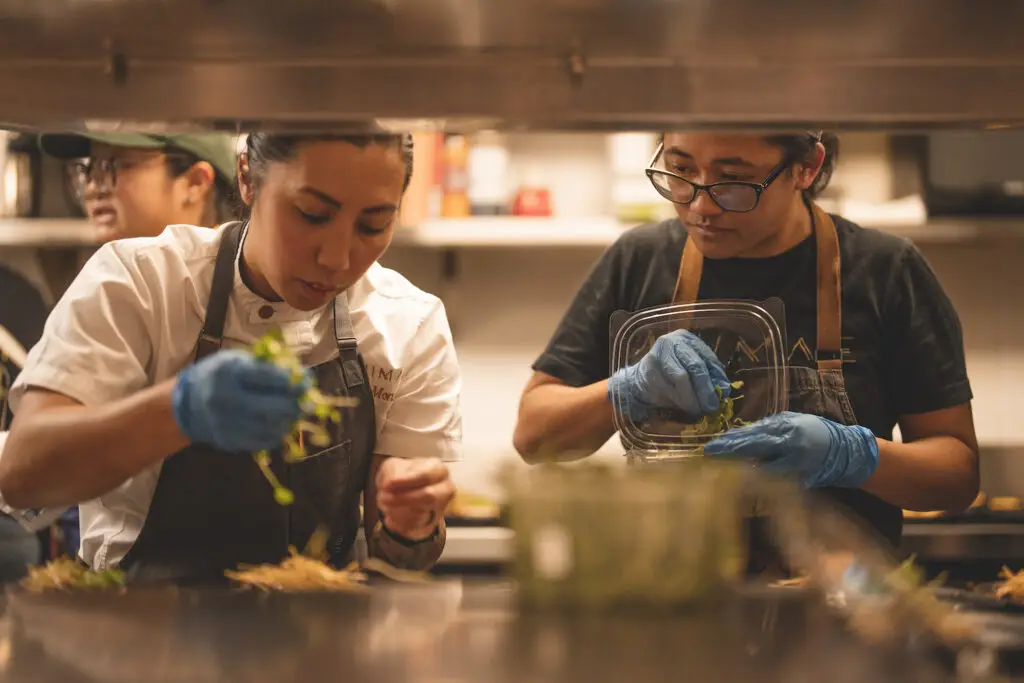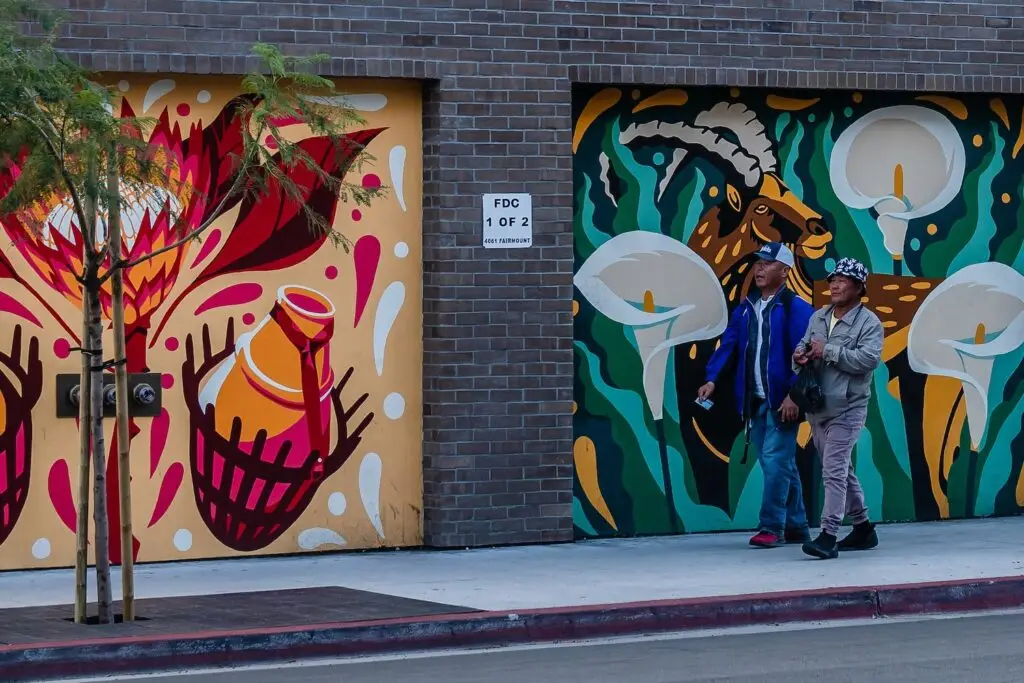Ethiopian food is for the hands. Utensils are not only unnecessary, but miss some essential philosophy of the food culture. All you need is injera—a soft, tangy flatbread traditionally made with teff flour (a nutritionally dense ancient grain, naturally gluten-free). It has the consistency of a fluffy crepe, light as lace. You tear slices of it off and pinch stew meat between it.
At Awash Ethiopian Restaurant, they serve enough injera with every dish that you could unroll it and do yoga on it. An incredible bounty.
“There are many reasons we eat with our hands,” explains Ethiopian-born Ababu Farise, who along with his brothers Demile and Habtamu opened Awash as a market specializing in Ethopian foods, spices, and culture in 2008. “Your hand knows how much your mouth can take. If you take too big of a bite, your hand will expand and you won’t be able to fit it in your mouth.”
So it’s a form of reasonable eating, using the human body as its own portion control. Fingers as a diet plan.
“You also make a connection with the food,” says Ababu. “With a fork or spoon there is no connection. Ethiopian food is all about connection. All the family eats together and communicates so you can sleep well. You can’t eat alone and go to sleep. You talk to your brother.”
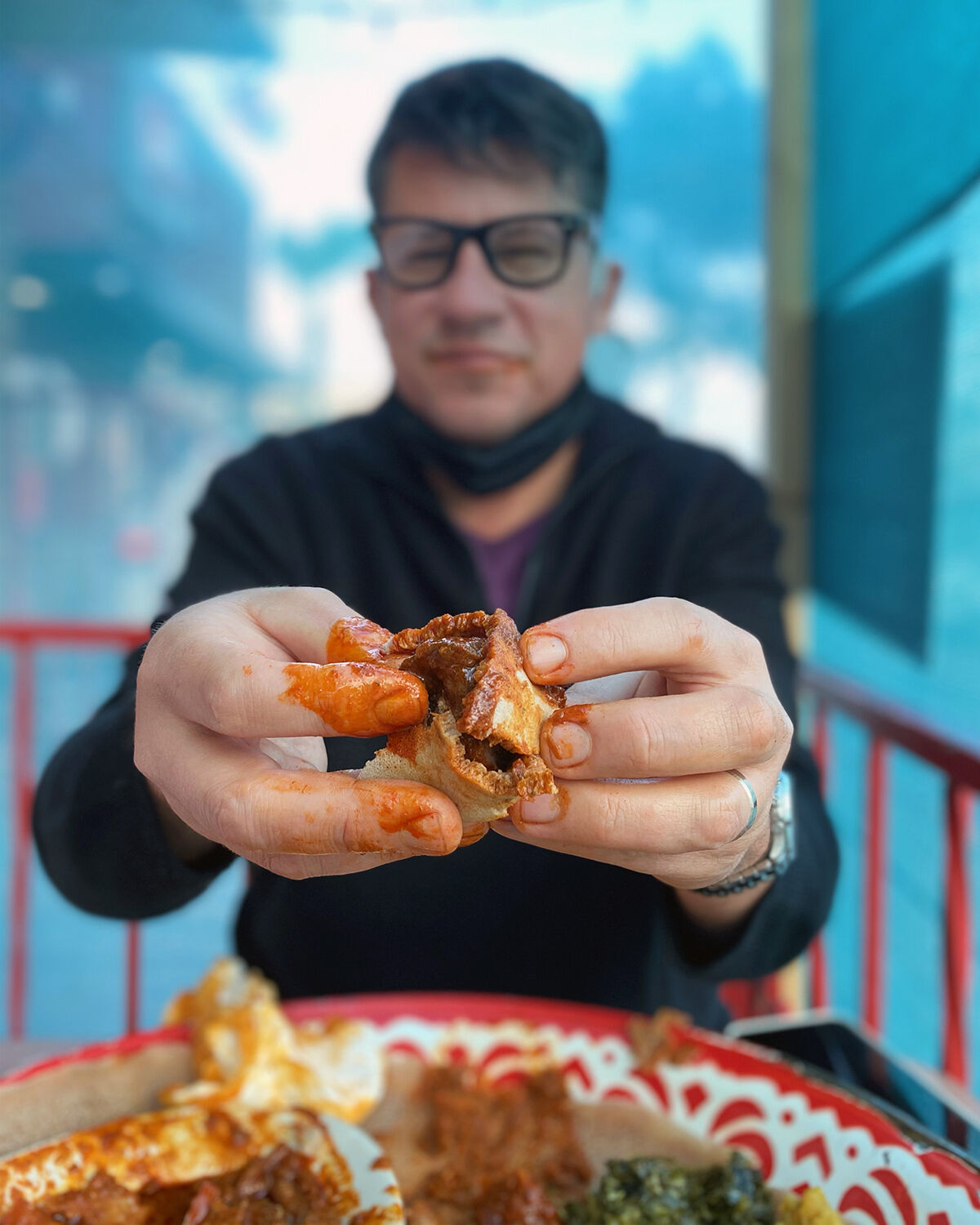
Awash Ethiopian Restaurant / Eat with Your Hands
Claire Johnson
I am fully connected with my food. I have delicious lamb stew on my fingers, running down various appendages, on my shirt. I look like I attempted to put on lipstick while drunk. I’ve eaten Ethiopian food on and off for years, and I always end meals looking like a toddler who crawled through spaghetti.
I ask Demile for a tutorial. He disappears into their shop and returns with some shiro wot (a vegetarian stew of chickpeas). He stands tableside and provides this helpful instructional without a single eye roll. He pinches and twists, over and over. In his hands, the injera is a surgical eating device.
Since opening, Awash has been a beacon for San Diego’s sizable Ethiopian culture, recognized with awards and letters and cards for their contribution to the community. Inside, you’ll find Ethiopian coffee, bags upon bags of spices, barley, and teff flour. There is a bookshelf full of Ethiopian literature, a wall of CDs of Ethiopian music, hand-carved wooden tobacco pipes. You can get prepaid phone cards to call loved ones still overseas.
“People couldn’t get Ethiopian music when we opened,” Ababu explains. “So we found a distributor and brought the real sound of Ethiopia, songs and instrumentals. Now most people can find the music online, but people still get the CDs. We serve the community. When people dine in, they can buy the ingredients on their way out. We will give them the recipe and they can make it the same way at home.”
Ababu just returned after spending four months with his mom in Ethiopia, where they cooked together nonstop. Most of the recipes at Awash are from their mom. I ask him about our favorite—No. 1, the “Awash Tibs,” a spicy stew with simmered cubes of beef, absolutely crimson.
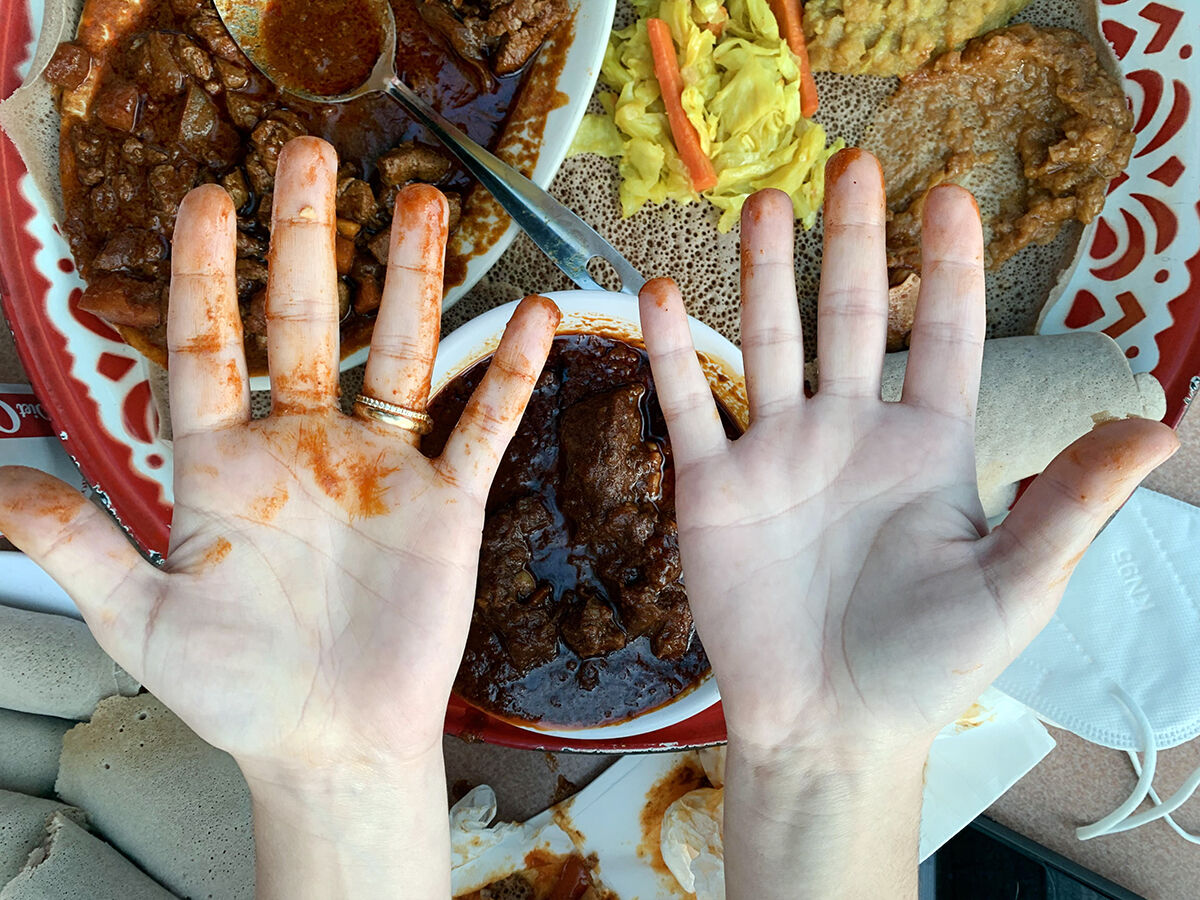
Awash Ethiopian Restaurant / Messy Hands
Troy Johnson
“That’s Mom’s recipe,” he says. “In Ethiopia you learn everything from Mom. It’s meat in berbere, Ethiopian spiced butter, fresh rosemary, other spices.”
Ethiopian cuisine has its share of meat. A few of the country’s most famous specialties are, in fact, raw beef—believed to have originated because soldiers in conflict needed protein but didn’t want to cook their food, since the fire and smoke would give away their location to enemies. But Ababu credits a lot of their success to how many vegetarian dishes they have.
“When many San Diegans started eating vegetarian, that got them interested in our Ethiopian food,” he says. “We also do about eight or nine Ethiopian weddings a year. Which is a lot. Each wedding is between 500 and 700 people.”
Ababu says I have to come back this weekend. “I have new recipes no one has tasted before,” he says. “Recipes from Mom.”

Awash Ethiopian Restaurant / Exterior
Troy Johnson
Awash Ethiopian Restaurant
2884 El Cajon Boulevard, North Park
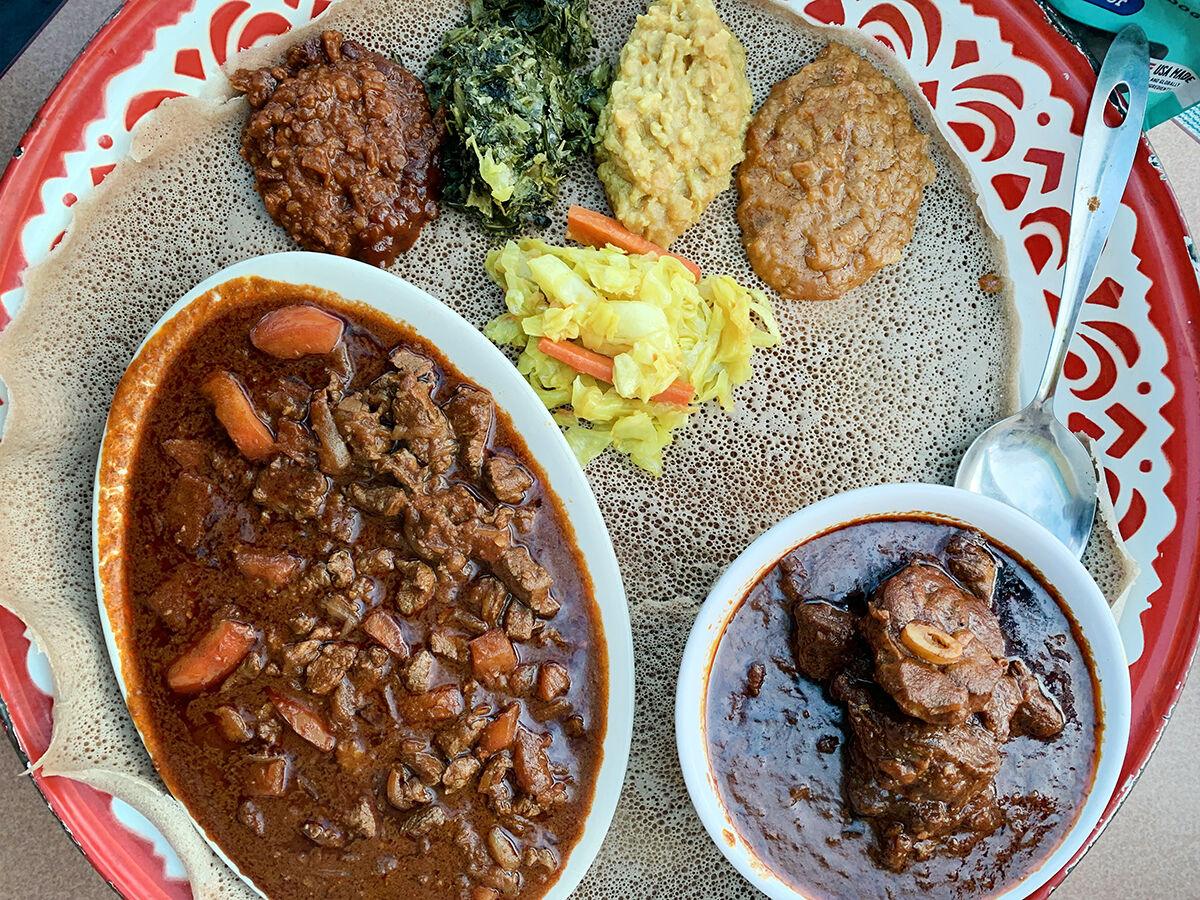
Awash Ethiopian Restaurant / Plate
PARTNER CONTENT
Troy Johnson
